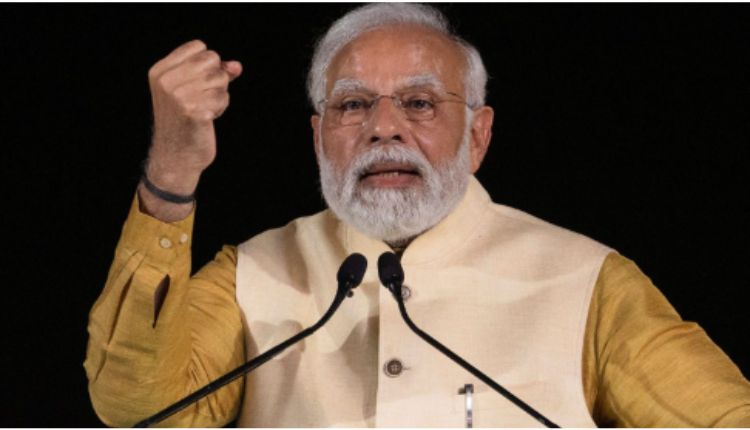
The BBC documentary questions PM Narendra Modi’s role in a series of anti-Muslim riots in his home state of Gujarat in 2002 that left more than 1,000 people dead. It examines a British report that blamed him for the bloodshed.
The government has invoked emergency powers to block clips online and blocked students’ attempts to hold screenings. That’s an attack on free press, CPJ says.
India: The Modi Question
The two-part bbc documentary on modi India: The Modi Question examines the role of Prime Minister Narendra Modi in anti-Muslim riots in his home state of Gujarat in 2002, which left more than 1,000 people dead. It cites a secret British government report that called him directly responsible for the violence, and says his governing party’s Hindu nationalist ideology helped fuel it. Indian authorities blocked the documentary from being broadcast in the country, and used emergency laws to force social media companies like YouTube and Twitter to block sharing of clips from it.
The government criticized the documentary as “hostile propaganda and anti-India garbage,” with a colonial mind-set. But the BBC argued that it was based on “a wide range of voices, witnesses and experts,” including responses from members of the BJP.
While the allegations posed by the bbc documentary are not new, it is one of the first to examine the full trajectory of Modi’s career leading up to his current leadership. It also raises questions about the state of India’s democracy, and how much the current government really cares about the plight of its citizens.
While Modi is the most powerful man in India, he still remains an extremely controversial figure. This is due to his past involvement in the Gujarat riots and suspicion that he supported them to help his own political ambitions. He has denied the accusations, and a Supreme Court investigation found no evidence to charge him. The riots, however, have hung over him ever since.
Although the bbc documentary on modi was only broadcast in the UK, the Indian government blocked it from being seen in the country and forced YouTube and Twitter to block sharing of clips from the program. It also invoked emergency law powers to block the BBC’s website in India, claiming that it was spreading “false news” about the country.
The Indian government’s actions have sparked an international outcry, and the BBC has been hit with a lawsuit by a group that claims it defamed the prime minister. Some members of parliament have also weighed in on the controversy, with Conservative MP Bob Blackman calling the documentary a “hatchet job” and Labour MP Rami Ranger slamming the decision to use the documentary.
Part 1
The first part of the documentary examines Modi’s role in Hindu-Muslim violence in the western Indian state of Gujarat in 2002. The riots erupted after a fire killed 60 Hindu pilgrims on a train, blamed by the media on Muslims, and led to violent attacks against Muslim homes and businesses. At least 1,000 people were killed, and a large number of Muslims displaced. Modi was the chief minister at the time, and the documentary cites a secret report from the British Foreign Office that he was directly responsible for a climate of impunity enabling the violence.
The BBC has faced stiff resistance in India since releasing the film, with critics accusing the corporation of bias and of having a continuing colonial mindset. In an attempt to stifle discussion of the issue, the government has banned the film from being shown in India and forced social media companies like Twitter and YouTube to take down clips using emergency laws. It has also raided the offices of the BBC in Mumbai and Delhi, seizing phones and documents. The BBC says it’s cooperating with authorities, but critics view the raids as retaliatory.
Amid the political turmoil, activists are calling for the screening of the film in the US to raise awareness about human rights violations in India under Modi’s leadership. The documentary was widely praised in the UK, where it was seen as an important addition to the existing body of evidence about human rights abuses under Modi’s government. However, rightwing media outlets and prominent social media accounts in India began attacking the BBC over its “bias” towards Muslims in the wake of its release.
Despite the ongoing controversy, the screening in the US will go ahead. Ahead of Modi’s visit to the United States, the screening is being viewed as an important opportunity for US lawmakers to raise concerns about discrimination against minorities in India. This is particularly critical given the US’s close economic and strategic ties with India, which has the world’s second largest economy and is a rising global power. In recent years, a growing number of US and European companies have sought closer ties with the country, including through trade deals and joint ventures.
Part 2
The second part of the two-part documentary examines the track record of Modi’s government following his re-election in 2019. It claims that a series of controversial policies have been accompanied by reports of violent attacks on Muslims. The BBC says the episode is “rigorously researched” and involved a range of voices and opinions.
The first installment examined Modi’s role in anti-Muslim riots that killed more than 1,000 people in his home state of Gujarat in 2002, when he was chief minister. It cited a British government report that held him directly responsible for creating a climate of impunity that allowed the violence to occur. The report also accused him of encouraging Hindu mobs and directing police to stand back. He denies involvement and was cleared of complicity in the riots by a special investigation team and India’s Supreme Court.
But the allegations have dogged him ever since, stoking suspicion that he’s quietly encouraged religious violence in the country of 1.3 billion. They were also a major reason why the U.S., the UK and the EU refused to grant him a visa as the country’s prime minister.
When the first part of the documentary aired in the UK, it was met with a fierce backlash in India. The government invoked emergency powers to block the broadcast, and it pressured social media sites like Twitter and YouTube to remove clips from their websites in India using unjustified information technology laws. It also pressed universities to stop students from holding screenings, and it arrested members of a student group who protested the ban.
The new episode of the documentary airs Tuesday night in the United Kingdom. The BBC says the second part will address a number of other questions about Modi’s leadership, including his commitment to reducing inequality in India. It will also probe whether his government’s push to abolish India’s constitutional safeguard of Kashmir’s special status violates the human rights of the region’s Muslim residents. It will also investigate the impact of Modi’s government on the country’s women, children and the environment, among other issues.
Summary
The two-part BBC documentary India: The Modi Question, which probes allegations that India’s PM, Narendra Modi, mishandled a 2002 riot that killed hundreds of Muslims in his home state of Gujarat, has sparked a fierce controversy. The Indian government has banned the film from being broadcast and forced social media platforms like Twitter and YouTube to take down clips. The BBC has denied the accusations and says it is cooperating with authorities.
The documentary explores allegations that Modi, then the chief minister of Gujarat, failed to prevent violence between India’s majority Hindus and minority Muslims in response to a train bombing that killed dozens of Hindus. Thousands were killed in the violence, and many homes and businesses were destroyed. Modi has denied involvement and a Supreme Court-ordered inquiry cleared him of wrongdoing. But the documentary has reopened old wounds, angering the government and leading to attacks on the BBC.
In a BBC interview, filmmaker Rohit Seth said that the film’s goal was to “show how Modi used these riots for political gain and then exploited them again in the general elections of 2014, when he was elected prime minister”. It includes interviews with journalists, family members of victims and witnesses, local activists and politicians, and even BJP leaders.
It’s been difficult for the Indian government to deal with this kind of criticism, but particularly coming from the BBC, which is a highly respected international outlet. The Modi administration is very thin-skinned and it doesn’t take criticism well.
The BBC’s decision to air the documentary is being challenged in court by a group of Hindu nationalists who claim that it defamed Modi. The group has alleged that the BBC was biased and had a “colonial mindset.”
Indian officials have warned that the controversy could hurt U.K.-India relations. But the attacks have only increased attention to the film, which examines tensions between Modi’s government and the country’s Muslim population. Watch this and more acclaimed documentaries on BBC Select today. Restrictions apply.
Conclusion
The BBC documentary on Modi offers a comprehensive and insightful examination of the Indian Prime Minister’s life and political journey. It delves into his humble beginnings, rise to power, and controversial decisions, presenting a multifaceted portrayal of a charismatic leader who has left an indelible mark on India’s political landscape.
FAQs:
- What are the main highlights of the BBC documentary on Modi? The BBC documentary on Modi showcases key milestones in his life, such as his early days as a tea seller, his involvement with the Rashtriya Swayamsevak Sangh (RSS), his tenure as the Chief Minister of Gujarat, and his ascension to the position of Prime Minister. It also explores his controversial decisions, like the demonetization move and handling of the Kashmir issue.
How does the documentary portray Narendra Modi’s leadership style? The documentary portrays Narendra Modi as a charismatic and authoritative leader with a strong focus on nationalism and economic development. It highlights his communication prowess, skilled use of social media, and international diplomacy. However, it also raises questions about his governance approach and the handling of religious tensions during his tenure.









